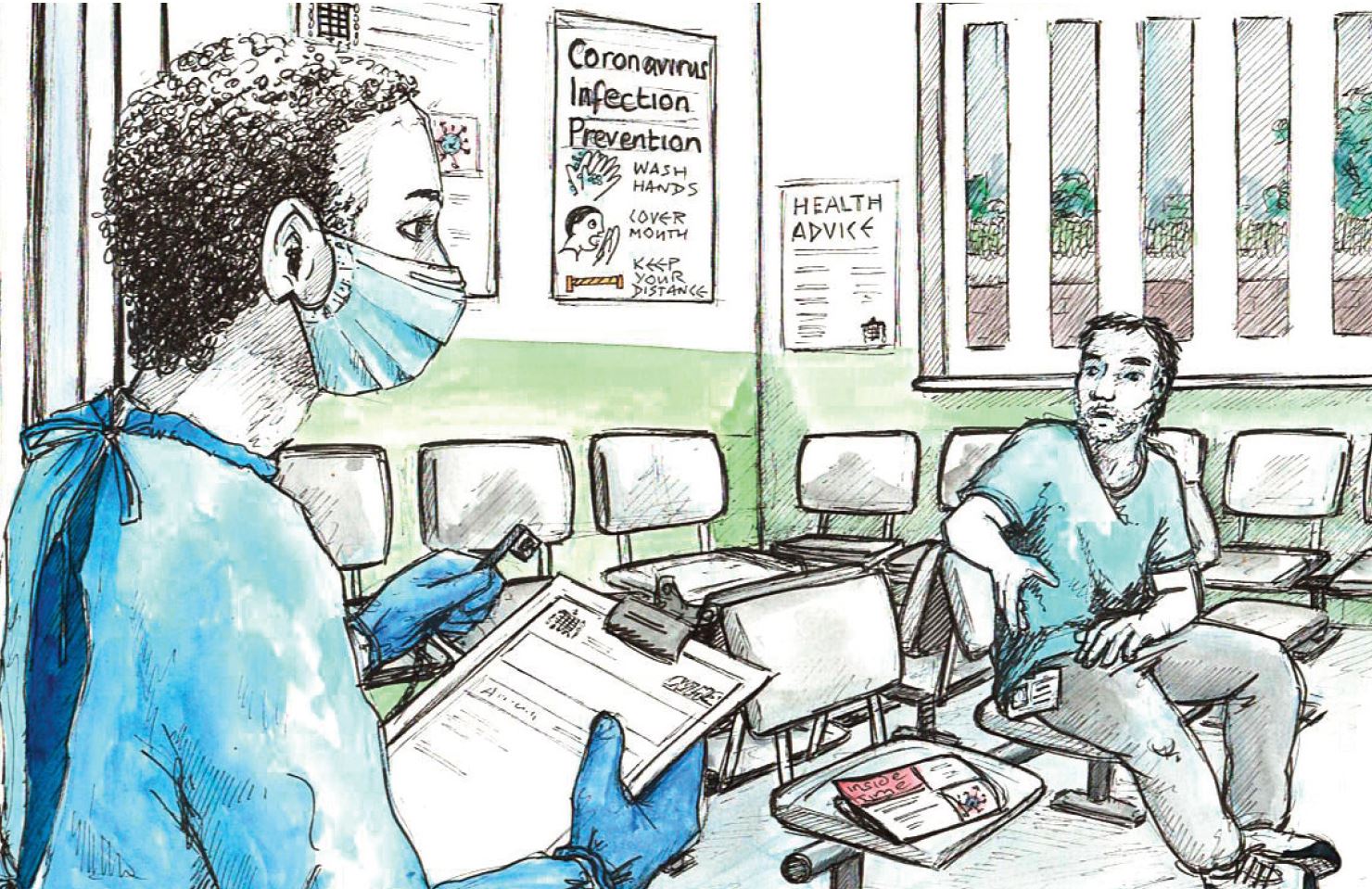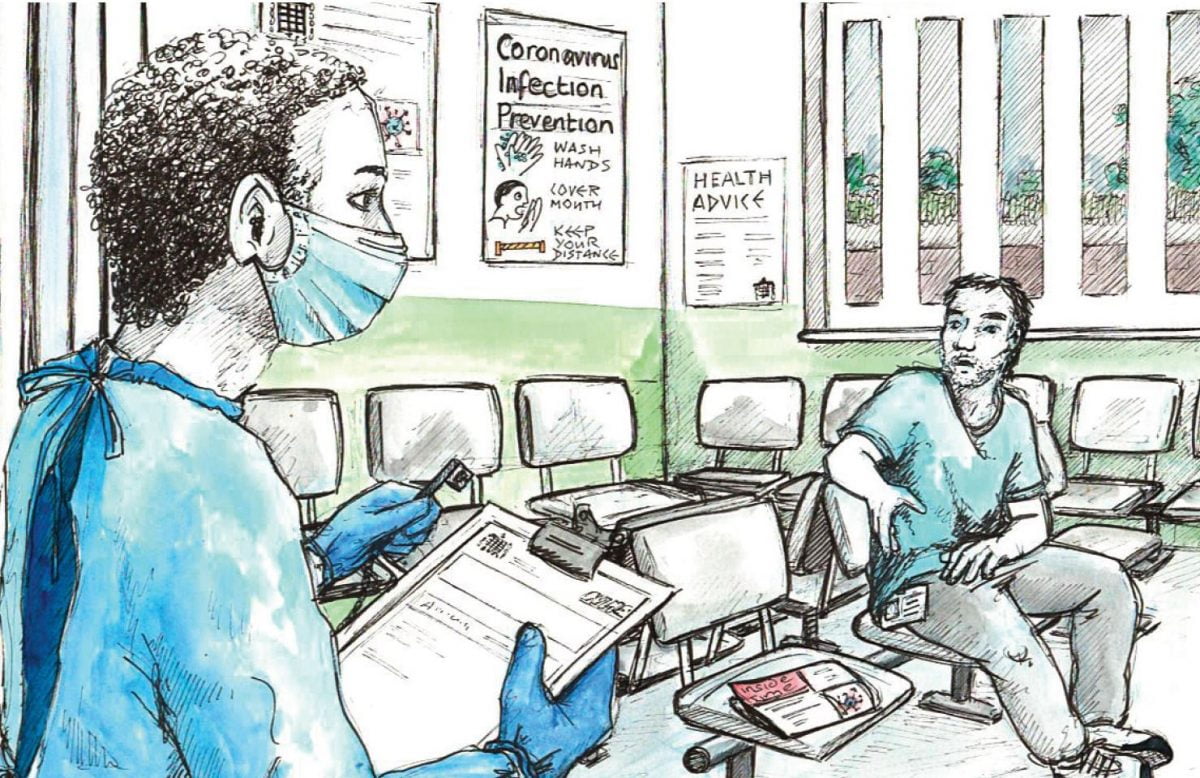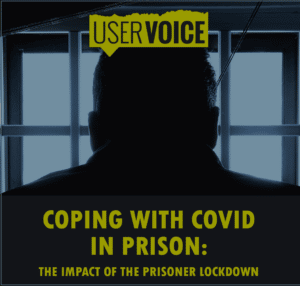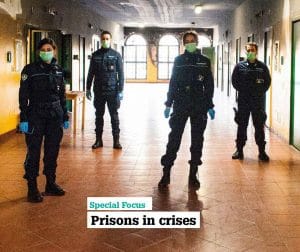Prisoners' experiences of lockdown
Last week, 11 February 2021, the Prison Reform Trust published its third CAPPTIVE briefing on the impact of the pandemic on people in prison. Based on evidence received from prisoners and their families from June to the present day, the briefing highlights the consequences for prisoners of being locked in their cells for up to 23 hours a day for the past 10 months under conditions which amount to “prolonged solitary confinement”.
It also highlights measures taken by prisons which had made the situation more bearable. These include kindness and empathy from staff, access to exercise and other activities, mental health support, good communications and effective precautions against the disease.
CAPPTIVE is a collaborative project by the Prison Reform Trust and our Prisoner Policy Network, which aims to describe life in prison under the pandemic.
The first CAPPTIVE briefing covered families and communication and the second, regimes, reactions and progression. This, the third briefing, covers precautions against transmission, routine health care, disabilities, prisoners’ well-being, mental health, self-harm, and what helped. CAPPTIVE received 180 responses from prisoners related to health, drawn from 79 identified prisons and six unspecified prisons.
In March 2020, HM Prison and Probation Service introduced measures to protect prisoners and staff in light of Covid-19. This included the introduction of a quarantine regime, ceasing all inter-prison transfers, separating new arrivals, isolating symptomatic prisoners, and shielding vulnerable prisoners.
Under the quarantine regime, time out of cell was severely restricted, leaving the vast majority of the prison population locked in their cells for up to 23 hours a day. The United Nations defines solitary confinement as being held in a cell for 22 hours or more per day. It states that prolonged solitary confinement is cruel, inhuman, or degrading. Prolonged is anything over 15 days.
The vast majority of CAPPTIVE respondents who wrote about the quarantine regime described negative effects for their well-being. Out of 180 prisoner responses on the theme of health, only three (less than 2%) mentioned any personal benefit from the regime of 23 hours isolated in their cell.
People experienced sensory deprivation due to 23-hour confinement in a cell, and many respondents reported feeling fatalistic. CAPPTIVE evidence showed that the regime undermined a person’s sense of identity; took away self-worth; and led to anxieties about the effects of separation on children.
Findings
Precautions
CAPPTIVE evidence suggests that people in prison were very aware that the primary risk of transmission of Covid-19 is from staff. On settled wings in particular, the chances of a prisoner becoming infected by any other route than contact with staff are minimal. This has implications for the precautions taken by officers working on wings.
In the summer, respondents reported uneven practice, with some staff not wearing PPE in interactions with prisoners, and some prisons not providing prisoners with masks. Staff not wearing masks endangered both prisoners and their colleagues. In October, the prison service circulated guidance on PPE, which should lead to more consistent use by staff and better provision for prisoners.
CAPPTIVE received far more comments about (a lack of) physical distancing than any other precaution. Public health policy advised people to keep two metres apart, especially indoors. Prison wings were never designed to facilitate physical spacing.
The risk of transmission by staff meant that their behaviour was scrutinised by prisoners. CAPPTIVE respondents criticised the neglect of distancing by officers, arguing that their behaviour made the severe restrictions imposed on prisoners hard to justify. To facilitate more activities and association while preventing the transmission of Covid-19, testing may prove a vital tool.
Routine health care
The range of feedback on GP appointments presented a continuum from no GP appointments available, through limited provision, to ‘amazing’. The major innovation reported was GP appointments via telephone. Telemedicine brought mixed reviews; some felt the system worked well, while others expressed concern about the lack of confidentiality of phone calls.
Disabilities
People with learning disabilities and learning difficulties might be profoundly disadvantaged by the quarantine regime. Information about the response to the pandemic might be inaccessible to someone with a learning disability and lead to misunderstandings about the changes in their daily life. While reading can pass the time for their peers, they might be more dependent on radio and television. Some of the materials included in the distraction packs might be unsuitable. As one CAPPTIVE respondent wrote, “As always, it is those with fewest communication skills who suffer the most.”
Well-being
Experience and well-being under quarantine comprises three themes:
- Agency/dependency (autonomy and meeting needs)
- Relationships
- Self-acceptance (self-esteem, a sense of purpose, and personal growth)
The restricted regime led many respondents to feel fatalistic. People experienced sensory deprivation due to 23-hour confinement in a cell. Before the pandemic, prison jobs, voluntary roles such as prison councils, education, vocational workshops, and association had given prisoners choices about how to spend their days. In contrast, the quarantine regime is dehumanising, taking away what little control prisoners had over their lives. This is likely to have long-term effects.
The primary relationships people wrote about were with families, officers, and fellow prisoners. CAPPTIVE evidence showed that the regime undermined a person’s sense of identity; took away self-worth; and led to anxieties about the effects of separation on children.
Feedback on relationships with staff suggested that some saw evidence of staff burn-out, with officers becoming less supportive than they were when the restrictions were first imposed. A rehabilitative culture promotes positive change through education, skills training, offending behaviour programmes, and, more broadly, faith activities and volunteering roles. Activities help to motivate people to get through their sentence and give that time a purpose. The quarantine regime curtailed most of these opportunities and led many to question whether their lives had a purpose.
Mental health
Even at their best, prisons are damaging environments for people with mental health needs. Under the quarantine regime, the negative impact on mental health problems has been amplified. Quarantine can result in increased irritability, anger, and frustration. Prisoners said that they witnessed people whose mental health was affected being sent to segregation.
The quarantine regime also affected levels of anxiety. People faced long periods of empty time and this led to over-thinking. Further, the regime prevented people from taking action to resolve problems for themselves (loss of autonomy).
The lack of activities and the loss of family contact undermined people’s well-being and contributed to depression. A few responses to CAPPTIVE provided strong evidence that staff were sometimes unaware of the damage that the quarantine regime was doing to mental health.
Self-harm
The CAPPTIVE evidence suggests that, due to the dramatic reduction in face-to-face contact occasioned by the quarantine regime, staff were less aware of self-harm. Well-being checks were not always a reliable method of assessing risk. However, some respondents reported officers providing practical help to manage their thoughts of self-harm.
Conclusions
The report concludes that individual officers’ willingness to support people in prison through lockdown is critical:
The CAPPTIVE feedback on health is overwhelming. It suggests that anyone in prison who believes that establishments are safer under a 23-hour lockdown is very likely to be outside the door, carrying keys. The limited time out of cell provides staff with very little insight into the person’s state of mind, motivations, or changing level of risk.
If there is very little time to engage with prisoners, staff lose the information they need to make informed judgments about an individual’s trustworthiness. Trust depends in part on chance encounters between officers and prisoners that reveal the person and build relationships. Thus, the loss of trust between officers and prisoners is collateral damage resulting from the exceptional regime.
CAPPTIVE evidence establishes that people have felt supported by empathy from staff, contact with family, activities (including exercise), and the care shown by health staff.
The quality of staff engagement with prisoners is vital to prisoners’ well-being. The regime requires specific qualities of prison officers – taking an interest in the needs of each person as an individual, giving people time to talk through the effects of the quarantine regime, bringing imagination to the challenge of helping people fill their time meaningfully. In this sense, the officer who finds fulfilment in giving individual attention to the people behind the doors will play a vital role in getting them through the quarantine.









